
Know About Doctors
Know About Doctors

Cardiologist -
Cardiology is the branch of medicine focused on diagnosing and treating heart-related diseases, including coronary artery disease, heart failure, arrhythmias, and congenital heart defects.
About Cardiologists:
Qualification : MBBS- MD/DM/DRNB- Diagnostic Procedures: Cardiologists use tests like ECGs, echocardiograms, stress tests, cardiac catheterization, angiography, and MRI to diagnose heart conditions.
Specializations:
- Interventional Cardiology: Treats heart conditions through minimally invasive procedures like angioplasty, stent placement, and CABG.
- Electrophysiology: Focuses on diagnosing and treating arrhythmias using techniques like cardiac ablation and pacemaker implantation.
Common Machines in Cardiology:
- ECG Machine: Records the heart's electrical activity to diagnose irregular rhythms or heart attacks.
- Echocardiography Machine: Uses ultrasound to visualize heart structure and assess function.
- Cardiac Stress Test Equipment: Monitors heart performance during exercise or medication-induced stress.
- Cardiac Catheterization Equipment: A thin catheter is inserted to diagnose and treat heart conditions.
- Pacemaker: Regulates heart rhythm by providing electrical stimulation.
- Coronary Angiography Machine: Uses X-rays and dye to identify blockages in coronary arteries.
- Cardiovascular MRI: Produces detailed images of the heart and blood vessels to assess function and abnormalities.
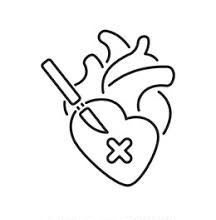
Cardiac Surgeon/ CTVS -
A Cardiothoracic Vascular Surgeon (CTVS) specializes in surgeries for the heart, lungs, and blood vessels. Common procedures include:
- Coronary Artery Bypass Grafting (CABG) – Bypasses blocked coronary arteries to improve heart blood flow.
- Heart Valve Surgery – Repairs or replaces damaged heart valves.
- Aneurysm Repair – Fixes weak or bulging areas in the aorta.
- Lung Surgery – Removes lung tumors or treats conditions like emphysema.
- Heart Transplant – Replaces a failing heart with a donor heart.
- Carotid Endarterectomy – Removes blockages in neck arteries to prevent strokes.
- Vascular Bypass Surgery – Bypasses blocked arteries in other body parts (e.g., legs).
- Thoracic Aortic Surgery – Treats diseases of the aorta in the chest.
- Minimally Invasive Surgery – Uses small incisions for heart procedures.
- Arrhythmia Surgery – Corrects abnormal heart rhythms.
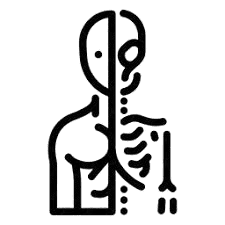
Anatomy -
Anatomy is the branch of biology that studies the structure of organisms and their parts. In medicine, it focuses on the human body’s organs, tissues, and systems, helping healthcare professionals understand how the body works and diagnose diseases.
Qualifications: MBBS- MS/MCH/DRNB
Procedures:
Anatomy specialists don’t perform surgeries, but their knowledge is crucial in guiding procedures like:
- Dissection: Studying the structure of the body through cadaver dissections.
- Imaging: Using tools like CT scans, MRIs, and X-rays to visualize and study the body's internal structures.
What They Do:
- Educate: Anatomy professors teach medical students and healthcare professionals about the human body.
- Research: Anatomists conduct research to understand body structures and their functions.
- Guide Medical Practices: Their understanding of anatomy supports safe surgeries and diagnostics by helping other healthcare providers understand where organs and tissues are located.
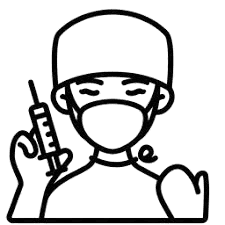
Anesthesiologist -
Anesthesia is the practice of using medications to prevent pain and discomfort during surgeries or medical procedures. It can involve general anesthesia (putting the patient to sleep), regional anesthesia (numbing a specific part of the body), or local anesthesia (numbing a small area).
Qualifications: MBBS- MD/DA/DM/DRNB
Procedures:
- General Anesthesia: Puts patients into a deep sleep for major surgeries.
- Regional Anesthesia: Numbs a specific region of the body, like an epidural for childbirth.
- Local Anesthesia: Numbs a small area for minor procedures.
- Sedation: Used to relax or calm patients during certain procedures.
What They Do:
- Preoperative Assessment: Evaluate patients' health to determine the best anesthesia approach.
- Administer Anesthesia: Ensure patients are safely sedated or anesthetized during procedures.
- Monitor Vital Signs: Continuously monitor the patient's heart rate, blood pressure, oxygen levels, and more during surgery.
- Postoperative Care: Manage pain relief and recovery after surgery, including monitoring for side effects of anesthesia.
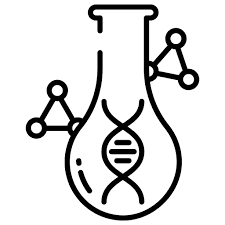
Biochemistry -
Biochemistry is the branch of science that studies the chemical processes and substances that occur within living organisms. It focuses on the molecular level, examining proteins, lipids, carbohydrates, and nucleic acids to understand how they contribute to life’s processes.
Qualifications:
To pursue a career in biochemistry, professionals typically have:
- B.Sc. in Biochemistry or related fields.
- M.Sc. or Ph.D. in Biochemistry for advanced research or academic roles.
- Medical biochemists may also have MBBS or MD qualifications with a specialization in clinical biochemistry.
Procedures:
- Blood Tests: Analyze biochemical markers like glucose, cholesterol, enzymes, and electrolytes.
- Protein Analysis: Techniques like electrophoresis to study proteins.
- Genetic Testing: Assess genetic material to identify diseases or conditions.
- Enzyme Assays: Measure enzyme activity to diagnose diseases or monitor treatment progress.
What They Do:
- Research: Study the chemical reactions that support life, often focusing on metabolism, genetics, or cell functions.
- Diagnostic Testing: Perform lab tests to analyze blood, urine, and tissues to diagnose diseases like diabetes, cancer, or heart disease.
- Quality Control: Ensure the accuracy of biochemical tests used in healthcare settings.
- Drug Development: Work on discovering and testing new treatments or medications by understanding biochemical pathways.

Medicine:
A. General Medicine:
General Medicine is a branch of medicine focused on the diagnosis, treatment, and prevention of a wide range of adult diseases, particularly those affecting the internal organs. General medicine doctors are typically Internists, also known as General Physicians.
Qualifications:
- Medical Degree (MBBS or equivalent): The first step to becoming a general medicine doctor is completing a medical degree.
- Internship/Residency: After medical school, doctors undergo a residency program in internal medicine (usually 3 years). During this period, they receive extensive training in diagnosing and treating various adult diseases.
- Board Certification: In some countries, internists can become board-certified by passing exams related to internal medicine.
- License to Practice: After completing the necessary education and residency, they must obtain a medical license to practice as a general physician.
- Physical Examinations: Comprehensive assessments of a patient's health, including heart, lung, and abdominal exams.
- Blood Tests: Checking for conditions like anemia, diabetes, cholesterol levels, and infections.
- Diagnostic Imaging: Ordering and interpreting X-rays, MRIs, CT scans, and ultrasounds.
- Electrocardiogram (ECG): Monitoring heart activity to detect issues like arrhythmias.
- Managing Chronic Conditions: Prescribing medications and managing conditions such as hypertension, diabetes, and asthma.
- Referrals: Referring patients to specialists for further treatment if needed.
- Diagnosis: General medicine doctors diagnose a wide variety of illnesses, from infections to chronic diseases like diabetes, hypertension, and cardiovascular diseases.
- Treatment: They prescribe medications, provide lifestyle recommendations, and manage ongoing care for conditions such as asthma, high cholesterol, and autoimmune disorders.
- Preventive Care: Offering vaccinations, health screenings, and advice on disease prevention, including smoking cessation, weight management, and exercise.
- Health Maintenance: Helping patients maintain overall health and wellness through routine check-ups and proactive disease management.
- Acute and Chronic Disease Management: Treating acute illnesses like infections or minor injuries, as well as managing chronic conditions like heart disease, diabetes, and respiratory disorders.
Procedures:B. Community Medicine:
Community medicine focuses on public health and the prevention of diseases within populations, rather than individuals. It involves understanding social, economic, and environmental factors that affect health and implementing strategies to improve overall community health.
Qualifications: MBBS- MD/MPH/DRNB
- Health Surveys: Collect data to assess the health status of a community.
- Vaccination Campaigns: Organize immunization programs to prevent diseases.
- Health Education: Conduct programs to raise awareness on sanitation, nutrition, and preventive healthcare.
- Epidemiological Studies: Investigate disease patterns, causes, and prevention methods.
- Prevention & Promotion: Work on preventing diseases and promoting health through education, vaccination, and lifestyle changes.
- Policy Advocacy: Collaborate with governments and organizations to create health policies and improve healthcare access.
- Public Health Research: Study disease outbreaks, health disparities, and environmental impacts on health.
- Community Health Management: Organize programs and initiatives that address the health needs of populations.
C. Emergency Medicine:
Emergency medicine is a medical specialty focused on the diagnosis, treatment, and care of patients with acute illnesses or injuries that require immediate attention.
Qualifications: MBBS- MD/DNB
Procedures:
- Trauma Care: Treat injuries like fractures, cuts, and head trauma.
- CPR (Cardiopulmonary Resuscitation): Provide life-saving measures in cases of cardiac arrest.
- Intubation: Inserting a tube into the airway to assist with breathing in critical patients.
- Chest Tubes: Inserted to drain air or fluid from around the lungs.
- Wound Care: Cleaning and stitching cuts, lacerations, or other injuries.
- Emergency Medication: Administering drugs for pain relief, infection prevention, or stabilizing vital signs.
What They Do:
D. Forensic Medicine:
Forensic Medicine is a specialized branch of medicine that applies medical knowledge to legal matters, often involving investigations related to death, injury, and other medical conditions in legal contexts.
Qualifications:
Procedures:Forensic medicine specialists are involved in several key procedures, such as:
- Autopsies (to determine the cause of death).
- Post-mortem Examinations (to assess injuries or identify diseases).
- Toxicology Reports (testing for poisons or drugs in bodies).
- Collection and Analysis of Evidence (e.g., DNA, blood, hair, etc.).
- Examination of Living Victims (e.g., for abuse, assault, or negligence).
- Testifying in Court as expert witnesses.
- Investigate cause of death, especially in cases of suspected homicide, suicide, or accidents.
- Assess injuries in living victims (e.g., in cases of sexual assault, domestic violence, or work-related injuries).
- Provide legal evidence and expert testimony in court to help determine guilt, negligence, or liability.
- Collaborate with law enforcement and legal authorities in criminal investigations and legal proceedings.
- Contribute to public health by identifying patterns in injuries, deaths, or diseases.
E. Respiratory Medicine:Respiratory Medicine is a medical specialty focused on the diagnosis, treatment, and management of diseases and conditions affecting the lungs and respiratory system.
Qualifications:
- Medical Degree (MBBS or equivalent): The first step to becoming a respiratory medicine doctor is completing a medical degree.
- Residency in Internal Medicine: After medical school, doctors typically undergo residency training in internal medicine, which lasts about 3 years.
- Respiratory Medicine Fellowship: Following internal medicine residency, doctors complete a specialized fellowship in respiratory medicine (usually 2-3 years) where they focus on lung diseases.
- Board Certification: After completing training, doctors can seek board certification in respiratory medicine (depending on the country).
- License to Practice: Respiratory medicine doctors must obtain a medical license to practice in their jurisdiction.
Procedures:
Respiratory medicine specialists perform a range of diagnostic and therapeutic procedures, including:
- Pulmonary Function Tests (PFTs): Tests to assess lung capacity and function, including spirometry.
- Bronchoscopy: A procedure to examine the airways and take samples (e.g., biopsies, sputum) for diagnostic purposes.
- Chest X-rays & CT Scans: Imaging tests to assess lung structure and identify diseases like pneumonia, lung cancer, or fibrosis.
- Arterial Blood Gas (ABG): A blood test to assess oxygen and carbon dioxide levels in the blood, useful for diagnosing conditions like respiratory failure.
- Sleep Studies: Diagnosing sleep apnea and other sleep-related breathing disorders.
- Inhalation Therapy: Prescribing inhalers and nebulizers for conditions like asthma or COPD.
What They Do:
Respiratory medicine specialists are responsible for:
- Diagnosing and Treating Respiratory Diseases: They focus on conditions like asthma, chronic obstructive pulmonary disease (COPD), pneumonia, tuberculosis, and lung cancer.
- Managing Chronic Lung Diseases: Treating ongoing conditions such as asthma, COPD, and pulmonary fibrosis by prescribing medications (e.g., bronchodilators, steroids) and recommending lifestyle changes.
- Acute Respiratory Conditions: Treating severe respiratory infections, lung infections, and breathing difficulties, such as during a respiratory failure.
- Sleep Apnea Management: Diagnosing and treating sleep apnea and other sleep-related breathing disorders.
- Preventive Care: Educating patients on smoking cessation, vaccination for respiratory diseases (e.g., flu, pneumonia), and proper lung health maintenance.
- Oxygen Therapy: Prescribing oxygen for patients with low oxygen levels due to lung diseases.
- Pulmonary Rehabilitation: Programs to help patients with chronic lung diseases improve their quality of life through exercise, education, and support.
F. Nuclear Medicine:Nuclear Medicine is a medical specialty that uses radioactive substances (radioisotopes) for the diagnosis and treatment of various diseases. It involves imaging and therapeutic techniques to evaluate organ function, detect abnormalities, and treat certain conditions, particularly cancers and thyroid disorders.
Qualifications:
- Medical Degree (MBBS or equivalent): The first step is completing a medical degree.
- Residency in Nuclear Medicine: After medical school, a doctor must complete a specialized residency program in nuclear medicine, typically lasting 4-5 years.
- Certification: After residency, the doctor may need to pass a certification exam to become board-certified in nuclear medicine, depending on the country.
- License to Practice: Nuclear medicine specialists must have a valid medical license to practice.
Procedures:
Nuclear medicine involves both diagnostic and therapeutic procedures, such as:- Positron Emission Tomography (PET) Scan: A type of imaging test that detects metabolic activity in tissues, often used in cancer diagnosis and monitoring.
- Single Photon Emission Computed Tomography (SPECT) Scan: A type of imaging that shows how blood flows to tissues and organs, commonly used for cardiac, brain, and bone scans.
- Radioactive Tracers/Isotopes: Small amounts of radioactive substances are injected, inhaled, or swallowed. These tracers emit radiation, which is detected by special cameras to evaluate organ function and detect abnormalities.
- Thyroid Scans: Using radioactive iodine or technetium to assess thyroid function or detect thyroid cancers or diseases.
- Bone Scans: Using a radioactive tracer to identify bone infections, fractures, or cancers.
- Radiation Therapy: Targeting specific cancer cells with radiation therapy using radioactive substances to shrink tumors or treat diseases.
What They Do:
Nuclear medicine doctors use radioactive materials for:- Diagnosing Diseases: Nuclear medicine is used to detect and diagnose conditions such as cancer, heart disease, bone disorders, and thyroid diseases by imaging organ function and detecting abnormalities.
- Cancer Detection and Staging: PET and SPECT scans are commonly used to detect and monitor cancer spread (metastasis) and treatment responses.
- Evaluating Organ Function: Nuclear medicine can assess how well organs, such as the heart, brain, and kidneys, are functioning.
- Targeted Treatment: Using radioactive substances to treat diseases, particularly cancer (e.g., radioactive iodine for thyroid cancer) or to shrink tumors.
- Therapeutic Radioactive Treatments: Administering radiation to treat conditions such as hyperthyroidism, certain types of cancers, or bone pain due to metastasis.

Dermatology -
Dermatology is the branch of medicine that focuses on the diagnosis, treatment, and prevention of skin, hair, and nail conditions.
Qualifications: MBBS- MD/DM/DDVL/DNB
Procedures:
- Skin Biopsy: Removing a small sample of skin for lab analysis to diagnose skin conditions.
- Cryotherapy: Freezing abnormal skin growths like warts or precancerous cells.
- Laser Therapy: Used to treat skin issues like acne scars, wrinkles, or tattoos.
- Chemical Peels: Removing the outer layer of skin to treat acne, pigmentation, or aging signs.
- Mohs Surgery: A precise technique to remove skin cancer with minimal tissue loss.
What They Do:
- Diagnose Skin Conditions: Treat diseases like acne, eczema, psoriasis, fungal infections, and skin cancer.
- Cosmetic Treatments: Provide treatments for wrinkles, scars, and other aesthetic concerns.
- Skin Cancer Management: Diagnose and treat skin cancer, including melanoma, basal cell carcinoma, and squamous cell carcinoma.
- Patient Education: Advise on skin care, sun protection, and prevention of skin disorders.

ENT Surgeon -
ENT stands for Ear, Nose, and Throat specialists, also known as otolaryngologists. They are medical doctors who diagnose, treat, and manage disorders related to the ear, nose, throat, and related structures of the head and neck.
Qualifications: MBBS- MD/MS/DM/DNB
Procedures:
ENT specialists can perform a variety of procedures, including:
- Ear: Ear tube placement, eardrum repair, hearing tests, cochlear implants.
- Nose: Sinus surgery, septoplasty (correcting a deviated septum), allergy treatment.
- Throat: Tonsillectomy, adenoidectomy, treatment for voice disorders, sleep apnea surgery.
- Head & Neck: Surgery for cancers or tumors in the head and neck, thyroid treatment.
What They Do:
ENT specialists treat conditions such as:
- Hearing loss, ear infections, and balance issues.
- Sinus problems, allergies, and nasal obstructions.
- Throat issues, including swallowing difficulties, voice problems, and sleep apnea.
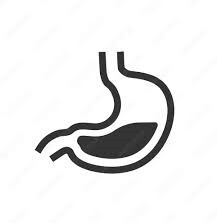
Gastroenterologist -
A Gastroenterologist is a doctor who specializes in diagnosing and treating diseases of the digestive system, including the stomach, intestines, liver, pancreas, and esophagus.
Qualifications: MBBS- MD/DM/DNB (DRNB)
Procedures:
Gastroenterologists perform various diagnostic and therapeutic procedures related to the digestive system, including:
- Endoscopy: A procedure where a flexible tube with a camera (endoscope) is inserted into the digestive tract to examine areas like the esophagus, stomach, and intestines.
- Colonoscopy: A type of endoscopy used to inspect the colon (large intestine) for issues like polyps, cancer, or inflammatory bowel disease.
- Upper Endoscopy (EGD): Inserting a scope through the mouth to examine the esophagus, stomach, and duodenum.
- Biopsy: Taking small tissue samples during endoscopic procedures to test for conditions like cancer or infections.
- Capsule Endoscopy: Swallowing a small camera that takes images of the digestive tract, particularly the small intestine.
- Liver Biopsy: A procedure to obtain a tissue sample from the liver to diagnose diseases like cirrhosis or hepatitis.
- Esophageal Manometry: A test to measure the pressure in the esophagus and diagnose swallowing disorders.
- Barium Swallow/Upper GI Series: A radiologic test to check for abnormalities in the esophagus, stomach, and upper part of the intestines.
What They Do:
Gastroenterologists focus on:
- Diagnosing and Treating Digestive Disorders: They handle conditions like gastroesophageal reflux disease (GERD), ulcers, irritable bowel syndrome (IBS), celiac disease, and Crohn’s disease.
- Managing Liver Diseases: Diagnosing and managing liver conditions such as hepatitis, cirrhosis, and liver cancer.
- Colon Cancer Screening: Performing colonoscopies to screen for colorectal cancer, especially in high-risk individuals.
- Treatment of Inflammatory Bowel Diseases (IBD): Managing chronic conditions like Crohn’s disease and ulcerative colitis.
- Nutritional Counseling: Helping patients manage conditions that affect digestion and absorption of nutrients.
- Managing Pancreatic Disorders: Treating conditions like pancreatitis and pancreatic cancer.
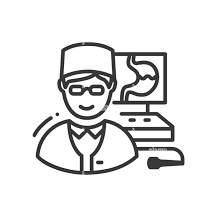
Gastro Surgeon/ GI Surgeon
A Gastrointestinal (GI) Surgeon specializes in performing surgeries related to the digestive system, including the stomach, intestines, liver, pancreas, and esophagus. GI surgeons handle both common and complex conditions that may require surgical intervention.
Qualifications: MBBS- MS/DM/DNB (DRNB)/MCH
Procedures:
GI surgeons perform a variety of surgical procedures related to the digestive system, including:
- Appendectomy: Removal of the appendix, typically due to appendicitis.
- Colorectal Surgery: Operations for conditions such as colon cancer, diverticulitis, Crohn's disease, or ulcerative colitis (e.g., colectomy, colostomy).
- Bariatric Surgery: Weight-loss surgery, such as gastric bypass or sleeve gastrectomy, for patients with severe obesity.
- Hernia Repair: Surgical repair of hernias in the abdominal wall, including inguinal and umbilical hernias.
- Gallbladder Surgery (Cholecystectomy): Removal of the gallbladder, commonly performed due to gallstones or inflammation (cholecystitis).
- Liver Resection or Transplantation: Surgery to remove portions of the liver, or in some cases, liver transplantation due to liver disease or cancer.
- Pancreatic Surgery: Operations to remove tumors or treat conditions like pancreatic cancer or pancreatitis.
- Esophageal Surgery: Procedures to treat conditions like esophageal cancer, achalasia, or severe gastroesophageal reflux disease (GERD), such as esophagectomy or fundoplication.
- Gastric Bypass or Gastric Sleeve: Surgical treatments for obesity, aiming to reduce stomach size and limit food intake or nutrient absorption.
What They Do:
GI surgeons are responsible for:
- Performing Surgical Interventions: They perform surgeries to treat conditions of the gastrointestinal tract, liver, pancreas, and esophagus, often in response to cancer, trauma, infections, or chronic diseases.
- Managing Digestive Tract Cancers: Treating cancers of the stomach, colon, esophagus, liver, pancreas, and rectum through surgery, often combined with other treatments like chemotherapy or radiation.
- Treating Inflammatory Bowel Disease (IBD): Surgery to manage complications of Crohn’s disease or ulcerative colitis, such as bowel resection or stoma creation.
- Liver and Gallbladder Surgery: Performing surgery to remove the gallbladder or sections of the liver affected by disease, and in some cases, performing liver transplants.
- Bariatric Surgery: Conducting weight-loss surgery for patients with morbid obesity, which can lead to significant improvement in quality of life and reduction in obesity-related diseases.
- Postoperative Care: After surgery, GI surgeons are responsible for the care and monitoring of their patients during recovery, including managing complications, ensuring wound healing, and addressing any post-surgery issues like infections or bowel function recovery.
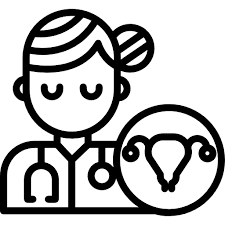
Gynecologist -
Qualifications: MBBS- MD/MS/DGO/DM/DNB (DRNB)
- Pap Smears: A test to screen for cervical cancer.
- Colposcopy: A procedure for examining the cervix when abnormal cells are detected.
- Hysterectomy: Removal of the uterus, performed for various conditions like fibroids or cancer.
- Laparoscopy: A minimally invasive surgery used for diagnosing and treating conditions like endometriosis, ovarian cysts, and pelvic pain.
- Ultrasound: To assess pregnancy, ovarian function, and other pelvic conditions.
- Contraceptive Counseling and Procedures: Including IUD placement and sterilization surgeries.
- Manage Women's Reproductive Health: Diagnosing and treating menstrual disorders, infertility, and pelvic pain.
- Pregnancy Care: Providing prenatal and postnatal care, including delivery and cesarean sections.
- Treat Gynecological Conditions: Managing conditions like fibroids, endometriosis, PCOS, and cervical or ovarian cancer.
- Perform Surgeries: Handling surgeries related to the reproductive system, such as hysterectomy or cesarean section.
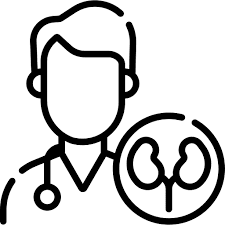
Nephrologist -
Qualifications: MBBS- MD/DM/DNB (DRNB)
Procedures:
- Dialysis: Nephrologists manage dialysis treatment for patients with kidney failure.
- Kidney Biopsy: A procedure where a small sample of kidney tissue is taken for analysis, often to diagnose kidney disease.
- Ultrasound and Imaging: To assess kidney structure and identify conditions such as kidney stones or tumors.
- Renal Artery Angioplasty: A procedure used to treat kidney artery blockages.
- Peritoneal Dialysis Catheter Insertion: Inserting a catheter for patients needing peritoneal dialysis.
Nephrologists are trained to treat a wide range of kidney-related issues, such as:
- Chronic Kidney Disease (CKD): Managing the progression of kidney damage over time.
- Acute Kidney Injury (AKI): Treating sudden declines in kidney function, often due to illness or injury.
- Kidney Stones: Diagnosis and management of kidney stones.
- Dialysis: Nephrologists oversee dialysis treatment for patients with severe kidney failure.
- Kidney Transplantation: They assess patients for kidney transplants and manage post-transplant care.
- Hypertension: Nephrologists treat high blood pressure, especially when it affects kidney health.
- Dialysis: Nephrologists manage and perform hemodialysis or peritoneal dialysis when a patient’s kidneys are not functioning properly.
- Renal Biopsy: A procedure where a small tissue sample from the kidney is taken for examination, often used to diagnose kidney diseases.
- Placement of Dialysis Access: They help in creating fistulas or grafts for dialysis patients to receive their treatments.
- Ultrasound and Imaging: Nephrologists may perform or interpret imaging studies to examine the kidneys' structure and function.

Psychiatrist -
Psychiatrists treat mental health disorders with therapy and medications.
Qualification: MBBS- MD/DM/DNB (DRNB)
What They Do:
- Diagnosis and Treatment of Mental Health Disorders: Psychiatrists diagnose and treat conditions like depression, anxiety, schizophrenia, bipolar disorder, and other mental health issues.
- Medication Management: Psychiatrists prescribe medications to help manage conditions like depression or anxiety.
- Psychotherapy: While psychiatrists can provide psychotherapy (talk therapy), some focus mainly on medication management, while others may also do counseling.
Common Procedures:
- Psychiatric Evaluation: Involves a comprehensive interview to understand the patient's mental health.
- Electroconvulsive Therapy (ECT): Used to treat severe depression or other mood disorders.
- Transcranial Magnetic Stimulation (TMS): A non-invasive treatment for depression.

Ophthalmologist
Ophthalmologists manage eye health and perform surgeries like cataract removal or LASIK.
Qualification: MBBS- MD/MS/DM/DNB (DRNB)
What They Do:
- Eye Care: Ophthalmologists diagnose and treat all eye diseases, perform surgeries, and manage vision problems.
- Surgical Procedures: They are trained to perform surgery, such as cataract removal, eye trauma repair, or refractive surgeries like LASIK.
- Medical Management: They treat conditions like glaucoma, macular degeneration, and diabetic retinopathy.
Common Procedures:
- Cataract Surgery: Removal of the cloudy lens in the eye, typically replaced with an artificial lens.
- LASIK: Laser eye surgery to correct vision issues like nearsightedness or farsightedness.
- Vitrectomy: Surgery to remove the vitreous gel from the eye, often used in retinal surgeries.

Orthopedic Surgeon -
Orthopedic Surgeons focus on the musculoskeletal system, offering treatments for fractures, arthritis, and joint replacements.
Qualification: MBBS- MD/MS/DM/DNB (DRNB)
What They Do:
- Bone, Joint, and Muscle Care: Orthopedic surgeons treat musculoskeletal issues, including bones, joints, muscles, ligaments, and tendons.
- Surgery and Rehabilitation: They perform surgeries to repair fractures, treat arthritis, replace joints, and reconstruct ligaments.
- Non-Surgical Management: They also treat conditions with physical therapy, medication, or injections.
Common Procedures:
- Joint Replacement Surgery: For conditions like osteoarthritis (e.g., hip or knee replacements).
- Fracture Repair: Surgery to set broken bones or place plates and screws.
- Arthroscopy: Minimally invasive surgery to diagnose or treat joint problems, often in the knee, shoulder, or hip.
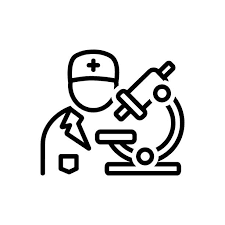
Pathologist -
Pathologists analyze tissues and blood to diagnose diseases and provide critical insights for medical treatments.
Qualification: MBBS- MD/DM/DNB (DRNB)
What They Do:
- Diagnose Diseases: Pathologists diagnose diseases through laboratory tests, including examining blood, tissue samples, and autopsies.
- Medical Consultation: They provide essential information to doctors about the nature and stage of diseases, such as cancer.
- Forensic Pathology: Some pathologists focus on determining cause of death and conducting autopsies.
Common Procedures:
- Biopsy Interpretation: Examining tissue samples under a microscope to diagnose diseases like cancer.
- Autopsy: Performing a post-mortem examination to determine the cause of death.
- Blood Tests and Cultures: Analyzing blood samples to detect infections, diseases, or conditions affecting the body.
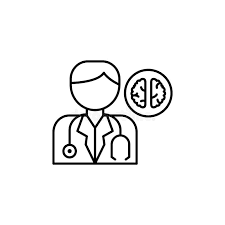
Neurologist -
Neurologists specialize in diagnosing and treating neurological conditions like epilepsy, Parkinson’s disease, and migraines, focusing on medical management and diagnostic testing.
Qualification: MBBS- MD/DM/DNB (DRNB)
What They Do:
- Diagnose and Treat Neurological Disorders: Neurologists specialize in treating diseases and conditions of the brain, spinal cord, nerves, and muscles.
- Non-Surgical Management: They provide medical management for conditions like epilepsy, Parkinson's disease, multiple sclerosis, Alzheimer's disease, and migraines.
- Neurological Testing: Neurologists perform and interpret tests like EEGs (electroencephalograms), MRIs, and lumbar punctures (spinal taps) to assess brain and nerve function.
Common Procedures:
- Electroencephalogram (EEG): A test that measures electrical activity in the brain to diagnose conditions like epilepsy.
- Lumbar Puncture (Spinal Tap): A procedure to collect cerebrospinal fluid for analysis, often used in diagnosing infections or neurological disorders.
- Botox Injections: Used for conditions like chronic migraines or dystonia (muscle disorders).
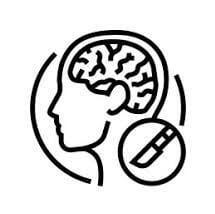
Neurosurgeon -
Neurosurgeons perform surgeries on the brain, spine, and nervous system, treating conditions like brain tumors, spinal injuries, and trauma through complex surgical interventions.
Qualification: MBBS- MS/DM/DNB (DRNB)/MCH
What They Do:
- Surgical Treatment of Neurological Disorders: Neurosurgeons perform surgeries to treat diseases and injuries of the brain, spine, and nervous system, including tumors, trauma, or deformities.
- Complex Brain and Spinal Surgery: They treat conditions like brain tumors, spinal cord injuries, herniated discs, and brain aneurysms with surgery.
- Emergency Neurosurgery: Neurosurgeons manage trauma cases like head injuries, spinal cord injuries, and hemorrhages that require immediate surgical intervention.
Common Procedures:
- Brain Tumor Removal: Neurosurgeons surgically remove tumors from the brain or spinal cord.
- Spinal Fusion: A surgical procedure to correct issues like spinal instability or herniated discs.
- Craniotomy: Surgery to remove part of the skull to access the brain, often performed in cases of brain injury, tumors, or aneurysms.
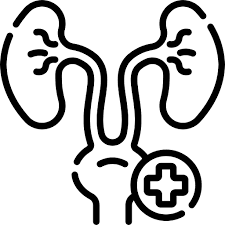
Urologist -
Urologists focus on diagnosing and treating urinary and male reproductive system conditions, using both medical and surgical methods.
Qualification: MBBS- MD//DM/DNB (DRNB)
What They Do:
- Diagnosis and Treatment: Urologists specialize in diagnosing and treating conditions affecting the urinary tract in both men and women, as well as the male reproductive system.
- Conditions Treated: They manage conditions like kidney stones, urinary tract infections (UTIs), bladder disorders, prostate issues (including cancer), and incontinence.
- Medical and Non-Surgical Treatments: Urologists use medications, lifestyle changes, and less invasive procedures to manage many conditions.
Common Procedures:
- Cystoscopy: A procedure using a small camera inserted into the bladder to diagnose or treat bladder conditions.
- Kidney Stone Removal: Urologists remove stones using techniques like lithotripsy (shockwave treatment) or surgery.
- Prostate Surgery: Procedures like TURP (transurethral resection of the prostate) for benign prostate enlargement or prostate cancer treatments.
- Vasectomy: A surgical procedure to sterilize men by cutting and sealing the vas deferens.

Urologic Surgeon (Urosurgeon) -
Urosurgeons are specialists within urology who focus on complex and advanced surgical procedures, often for conditions like cancer, severe injuries, or malformations in the urinary tract or reproductive system
Qualification: MBBS- MS/DM/DNB (DRNB)/ MCH
What They Do:
- Surgical Expertise: Urologic surgeons specialize in performing complex surgeries for conditions affecting the kidneys, bladder, prostate, and male reproductive organs.
- Conditions Treated: They address conditions like kidney and bladder cancer, severe kidney stones, prostate issues, and reconstructive surgeries for urinary tract malformations or injuries.
- Advanced Surgical Procedures: Urosurgeons handle more invasive and specialized surgeries than a general urologist, including cancer treatments and complex reconstructions.
Common Procedures:
- Robotic Prostatectomy: A minimally invasive surgery to remove the prostate, often used for prostate cancer.
- Nephrectomy: The removal of a kidney, often due to cancer or severe damage.
- Bladder Cancer Surgery: Removal of bladder tumors or even the entire bladder in severe cases.
- Urethral Reconstruction: Surgical correction of structural abnormalities in the urinary tract, such as strictures or injury repairs.

Pediatrician
Pediatricians focus on the health and medical care of children, from newborns to adolescents, providing routine check-ups, vaccinations, and treatment for common illnesses.
Qualification: MBBS- MD/DM/DNB (DRNB)
What They Do:
- Child Health Care: Pediatricians diagnose and treat a wide range of medical conditions in children, from routine check-ups to acute illnesses and chronic conditions.
- Preventive Care: They provide vaccinations, health screenings, and advice on growth, nutrition, and development.
- Common Conditions: Pediatricians manage illnesses like ear infections, colds, asthma, and childhood obesity.
Common Procedures:
- Immunizations: Administering vaccines to children to protect them from various diseases.
- Growth and Development Monitoring: Tracking milestones and providing guidance on physical and mental development.
- Minor Wound Care: Treating cuts, scrapes, and injuries that require basic care.
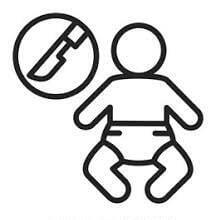
Pediatric Surgeon -
Pediatric Surgeons are specialized surgeons who perform surgeries on children to treat congenital conditions, injuries, or diseases like appendicitis and birth defects.
Qualification: MBBS- MS/DM/DNB (DRNB)/ MCH
What They Do:
- Surgical Care for Children: Pediatric surgeons perform surgeries to treat conditions like congenital malformations, tumors, injuries, and gastrointestinal issues in children.
- Complex Conditions: They treat both common and rare surgical problems in children, such as appendicitis, hernias, or birth defects.
- Postoperative Care: They provide specialized care for children recovering from surgery.
Common Procedures:
- Appendectomy: Surgical removal of the appendix, often for appendicitis.
- Hernia Repair: Surgery to correct a hernia, commonly in infants or young children.
- Correction of Birth Defects: Surgical procedures to treat congenital conditions like spina bifida or cleft lip/palate.

Plastic Surgeon -
Plastic Surgeons perform both cosmetic (aesthetic) surgeries to enhance appearance and reconstructive surgeries to restore form and function after injury, surgery, or congenital issues.
Qualification: MBBS- MS/DM/DNB (DRNB)
What They Do:
- Cosmetic and Reconstructive Surgery: Plastic surgeons specialize in both cosmetic surgeries (enhancing appearance) and reconstructive surgeries (restoring form and function).
- Aesthetic Surgery: They perform surgeries like facelifts, rhinoplasty (nose job), breast augmentation, and liposuction.
- Reconstructive Surgery: They treat burns, traumatic injuries, congenital deformities (like cleft lip/palate), and cancer-related reconstructive procedures.
Common Procedures:
- Facelift: A cosmetic surgery to reduce facial wrinkles and sagging.
- Breast Reconstruction: After mastectomy due to cancer, plastic surgeons reconstruct the breast tissue.
- Skin Grafting: Used to treat burn victims or large skin wounds by covering them with healthy skin from another part of the body.

Radiologist -
Radiologists use medical imaging (X-rays, MRIs, CT scans, etc.) to diagnose diseases and conditions, and some also perform procedures like biopsies or guide treatments using imaging techniques.
Qualification: MBBS- MD/DM/DNB (DRNB)
What They Do:
- Medical Imaging: Radiologists specialize in diagnosing diseases and conditions by interpreting medical images, such as X-rays, CT scans, MRIs, and ultrasounds.
- Diagnostic and Interventional: Some radiologists focus solely on diagnostic imaging, while others may also perform procedures, such as biopsies or the placement of stents, under imaging guidance.
- Image Interpretation: They analyze medical images to identify fractures, tumors, infections, and other health concerns.
Common Procedures:
- X-rays: Radiologists interpret images to diagnose fractures, lung diseases, and more.
- CT Scan: A detailed imaging technique used to visualize organs and tissues inside the body.
- MRI: A non-invasive imaging procedure that uses magnetic fields to create detailed images of organs, soft tissues, and the brain.
- Biopsy: Using imaging techniques to guide the removal of tissue for examination to diagnose cancer or other diseases

Oncologist -
Oncologists are medical doctors specializing in the diagnosis and treatment of cancer, often working in multidisciplinary teams.
Qualification: MBBS- MD/DM/DNB (DRNB)
What They Do:
- Diagnosis and Treatment of Cancer: Oncologists are medical doctors who specialize in diagnosing and treating various types of cancer, working with patients to develop treatment plans.
- Multidisciplinary Care: Oncologists often work with a team of specialists, including surgeons, radiation oncologists, and pathologists, to treat cancer comprehensively.
Common Procedures:
- Biopsy: Taking tissue samples to diagnose cancer.
- Chemotherapy: Administering medications to kill cancer cells or shrink tumors.
- Immunotherapy: Boosting the body's immune system to fight cancer.
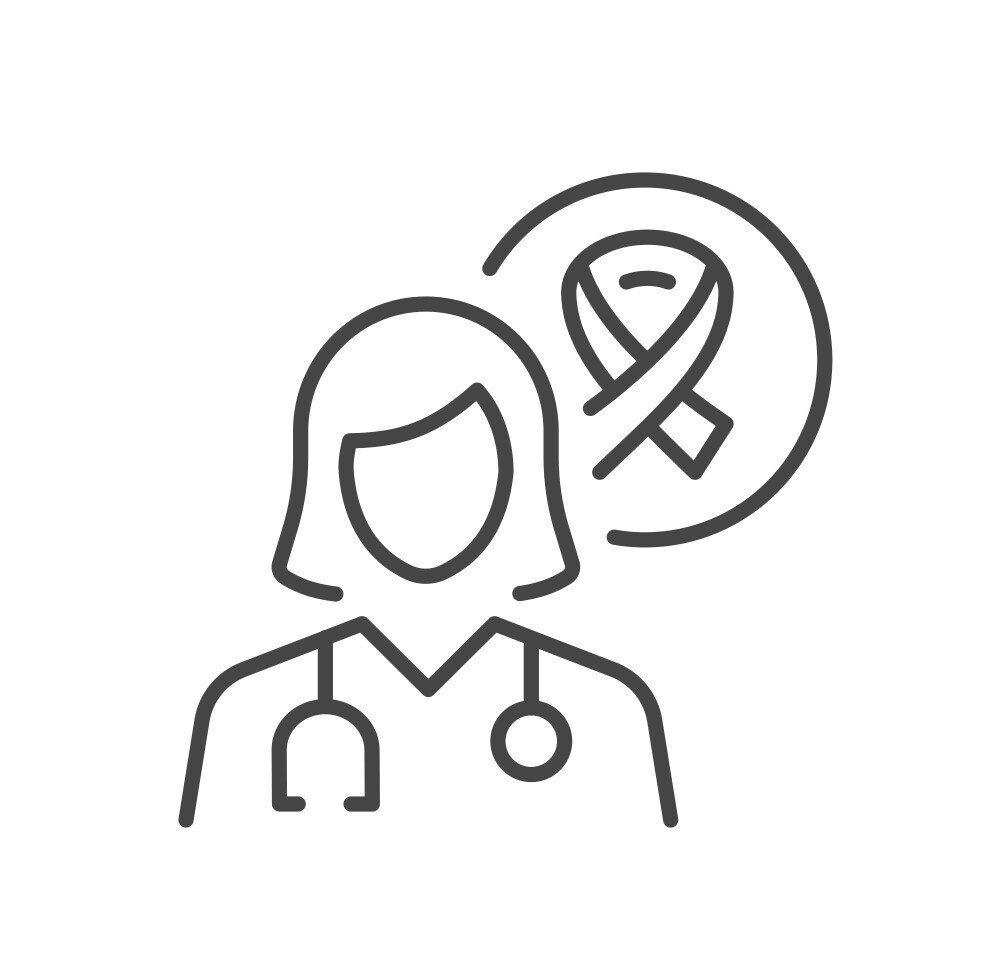
Surgical Oncologist -
Surgical Oncologists specialize in the surgical removal of tumors and cancerous tissues, including lymph node dissection and tumor resections.
Qualification: MBBS- MS/DM/DNB (DRNB)/ MCH
What They Do:
- Surgical Treatment of Cancer: Surgical oncologists perform surgery to remove tumors or cancerous tissues. They are involved in diagnosing cancers that require surgical intervention.
- Tumor Removal: They perform procedures to remove both primary tumors and metastases (cancer that has spread).
- Supportive Care: Surgical oncologists work alongside other oncologists to provide a complete treatment plan, including chemotherapy, radiation therapy, or post-operative care.
Common Procedures:
- Tumor Resection: Surgical removal of tumors in various organs, such as breast cancer surgery (mastectomy), colorectal cancer surgery, or liver resection.
- Lymph Node Dissection: Removal of lymph nodes to check for cancer spread.
- Biopsy: Surgical removal of tissue to diagnose the type and stage of cancer.

Medical Oncologist -
Medical Oncologists focus on treating cancer with medications like chemotherapy, targeted therapy, and immunotherapy, managing long-term care and symptoms.
Qualification: MBBS- MD/DM/DNB (DRNB)
What They Do:
- Chemotherapy and Drug Treatment: Medical oncologists specialize in treating cancer using medications like chemotherapy, targeted therapy, and immunotherapy.
- Cancer Management: They develop and manage comprehensive treatment plans for patients, often using a combination of treatments like chemotherapy, hormone therapy, and biological therapies.
- Long-Term Care: Medical oncologists are involved in monitoring and managing the long-term care of cancer patients, helping with symptoms and side effects of treatment.
Common Procedures:
- Chemotherapy: Administering powerful drugs to kill or shrink cancer cells.
- Targeted Therapy: Using drugs that target specific cancer cell mechanisms.
- Immunotherapy: Stimulating the body’s immune system to attack cancer cells.
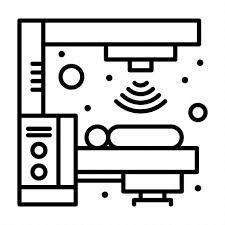
Radiation Oncologist -
Radiation Oncologists use radiation therapy to treat cancer, either curatively or palliatively, with methods like external beam radiation or brachytherapy.
Qualification: MBBS- MS/DM/DNB (DRNB)
What They Do:
- Use of Radiation to Treat Cancer: Radiation oncologists use high-energy radiation to treat cancer and shrink tumors. They design radiation treatment plans specific to each patient's needs.
- Radiation Therapy: They are responsible for determining the most effective radiation therapy protocol, including dose, frequency, and type of radiation.
- Palliative Care: In addition to curative treatments, they may use radiation to manage symptoms in advanced cancer, such as pain relief or bleeding control.
Common Procedures:
- External Beam Radiation Therapy: Delivering targeted radiation from outside the body using a machine (linear accelerator).
- Brachytherapy: Placing radioactive material directly inside or near the tumor, commonly used for prostate cancer.
- Stereotactic Radiosurgery: A non-invasive procedure using high doses of radiation to treat tumors in the brain or spine.
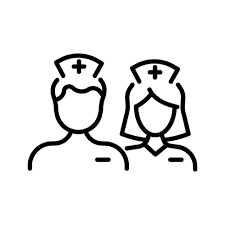
Nursing Staff -
- Patient Assessment: Nurses assess patients' health, monitor vital signs, and track changes in condition.
- Medication Administration: Nurses prepare, administer, and monitor medications, educating patients on usage.
- Wound Care: Nurses clean and dress wounds, monitor for infection, and assist with healing.
- Assisting ADLs: Help patients with daily activities like bathing, dressing, and mobility.
- Patient Education: Nurses teach patients about procedures, medications, and chronic disease management.
- Infection Control: Nurses follow sterile techniques and use PPE to prevent infections.
- Emergency Care: Nurses perform CPR and first aid, and assist in life-threatening situations.
- Collaborative Care: Work with doctors and other healthcare staff to provide comprehensive care.
- Documentation: Maintain accurate patient records and ensure legal compliance.
- Advocacy: Ensure patient rights are respected and advocate for their needs.
CNA (Certified Nursing Assistant)/ LPN/LVN (Licensed Practical Nurse)/ RN (Registered Nurse)/ APRN (Advanced Practice Registered Nurse)/ NP (Nurse Practitioner)/ B.Sc. Nursing/ M.Sc. Nursing/ GNM .
Responsibilities:
- Direct Patient Care: Monitor vital signs, administer treatments, assist with mobility, and provide wound care.
- Patient Education: Teach patients about their conditions, treatment plans, and self-care.
- Care Coordination: Collaborate with healthcare teams to create and implement patient care plans.
- Emotional Support: Offer comfort and guidance, especially in critical or end-of-life situations.
- Leadership: Supervise and mentor junior staff, ensuring quality care standards are met.

